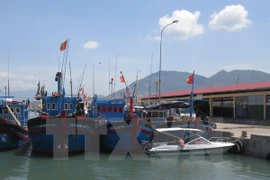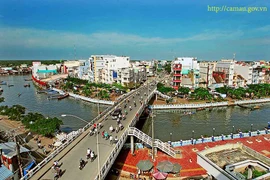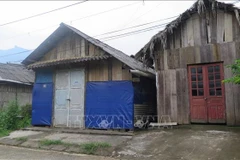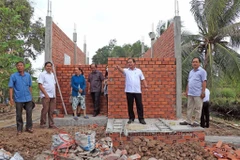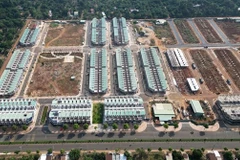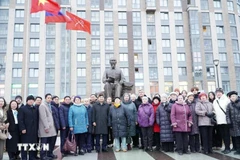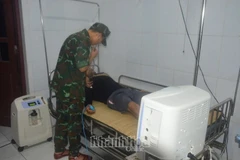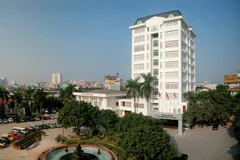 A Khmer language lesson in southern Vinh Long Province. The Mekong Delta has not been able to meet its demand for high-quality human resources to achieve socio-economic development despite some improvement. Photo: VNA
A Khmer language lesson in southern Vinh Long Province. The Mekong Delta has not been able to meet its demand for high-quality human resources to achieve socio-economic development despite some improvement. Photo: VNA
The Mekong Delta has not been able to meet its demand for high-quality human resources to achieve socio-economic development despite some improvement, according to experts.
The rate of students graduating from high school in the delta has been equal to the national average, but the number of tertiary students here is 175 per 10,000 people compared with the country's rate of 277, according to the Southwest Region Steering Committee.
The delta has 5.1 doctors per 10,000 people while the national average is 7.5.
Even in rice, fruit and aquatic farming, the region, the country's main producer, suffers from small scale and limited use of technology.
Speaking at a seminar in Can Tho on August 7, Mai Thi Anh Tuyet, Director of the An Giang province’s Department of Industry and Trade, said to improve the quality of human resources, delta provinces should draft education plans and speed up work on education and training infrastructure.
Educational concepts and tertiary education and vocational training mechanisms should be remodelled, she said.
The region should encourage the establishment of private vocational schools, she added.
Duong Quoc Xuan, Deputy Head of the Southwest Region Steering Committee, said local authorities should closely work with provincial authorities and have detailed roadmaps to develop skilled human resources.
Participants said poor infrastructure and facilities for education and training, modest quality of teachers and officials and low awareness among people about improving education and job skills are the major reasons for the low quality of human resources in the delta.
They called on universities in HCM City to provide more training in the delta, especially for officials in jobs requiring high levels of professional skills.
Nguyen Dong Phong, Rector of the University of Economics HCM City, said students studying outside their provinces should be attracted back home to work after graduation with incentives, he said.-VNA


